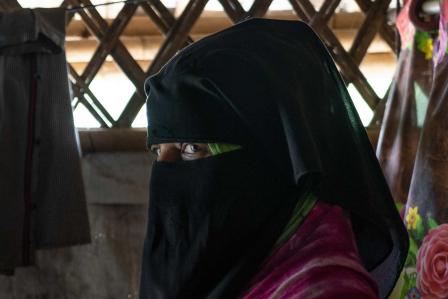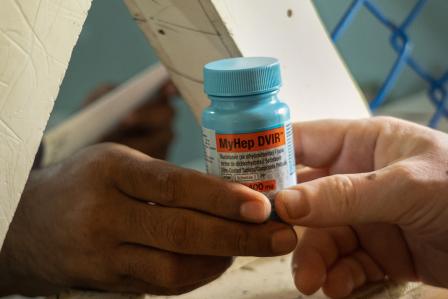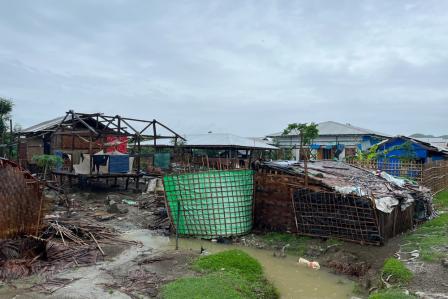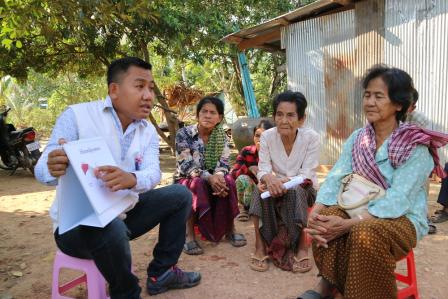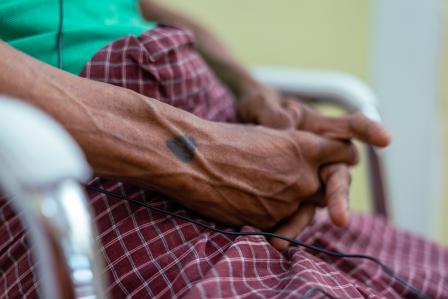Public health partnership to tackle the silent epidemic of hepatitis C in low- and middle-income countries
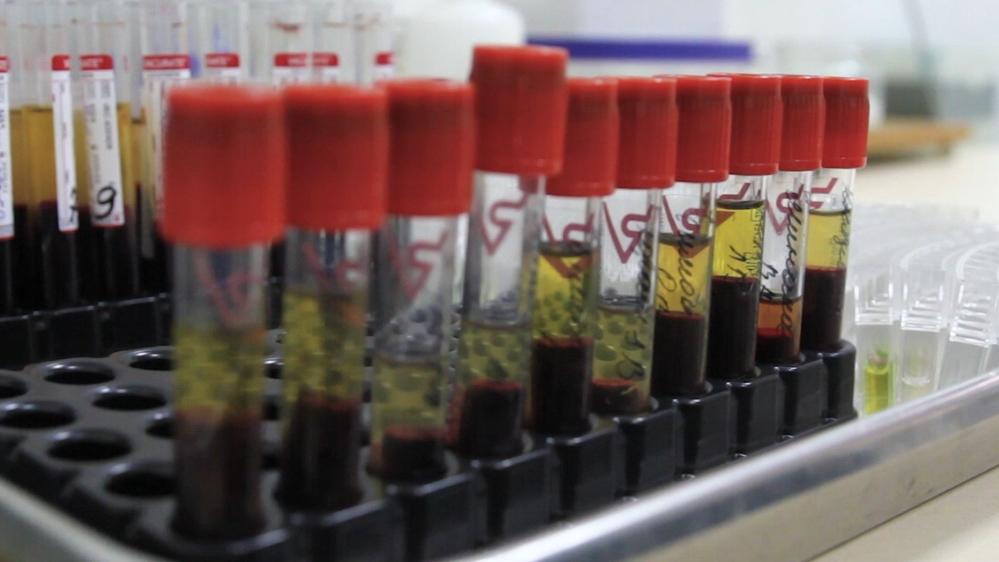
As of 2019, at least 5% of the population, or two million people, in Ukraine are infected with hepatitis C, according to estimates from World Health Organisation. If left untreated, hepatitis C can lead to liver fibrosis, cirrhosis, liver cancer and even death. Fortunately, hepatitis C is preventable and curable.
In 2017, Doctors Without Borders opened a project in southern Ukraine that offers innovative hepatitis C treatment using advanced drugs that can cure hepatitis C in as little as 12 weeks. 26 July 2019 © Yevhen Tsymbaliuk
Geneva, Paris, New York – The Drugs for Neglected Diseases initiative (DNDi), Doctors Without Borders / Médecins Sans Frontières (MSF), FIND, the global alliance for diagnostics, and the Treatment Action Group are joining forces to tackle a ‘silent’ public health injustice: the continuing disparities in access to diagnostics and treatment for the hepatitis C virus (HCV) in low- and middle-income countries (LMICs), home to 75% of those living with this viral illness.
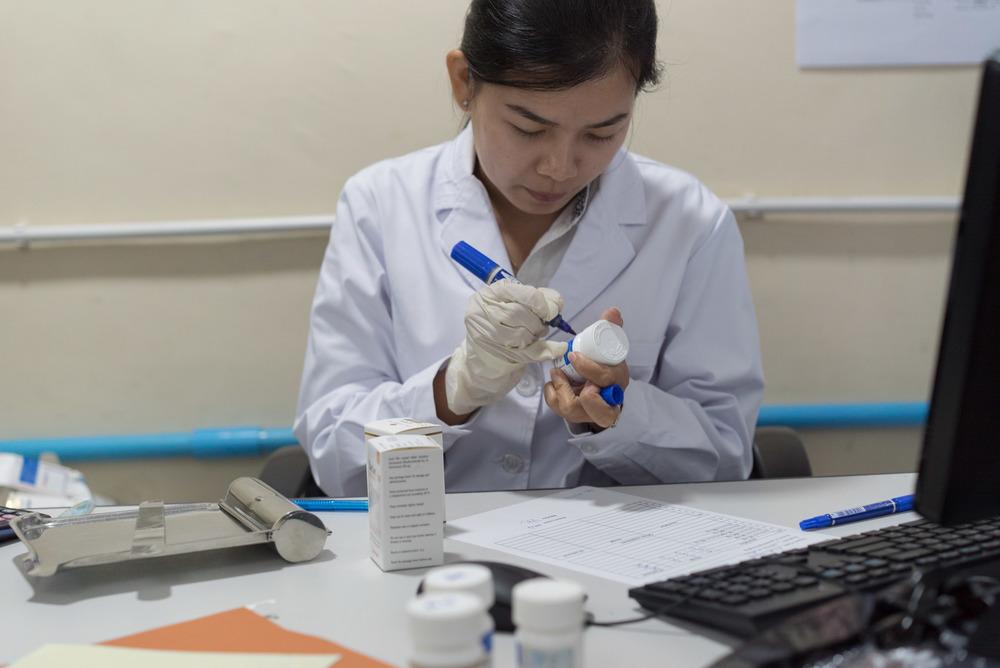
Doctors Without Borders Pharmacy Technician Toueng Sreymon distributes Hepatitis C meds at the Preah Kossamak Hospital in Phnom Penh, Cambodia. April 2017. © Todd Brown
The Hepatitis C Partnership for Control and Treatment, or Hepatitis C PACT, will foster an enabling environment for testing and treatment for HCV in LMICs by rolling out all-oral cures, scaling up community-based testing to find the missing millions of undiagnosed people, and addressing domestic financial challenges that prevent the launch of national programmes. It will also tackle patent and access barriers that stand in the way of reaching World Health Organization (WHO) goals of controlling hepatitis C by 2030.
Through its cumulative expertise and independence, the new partnership will build collaborations with countries and community and civil society groups and develop evidence to support ambitious test-and-treat programmes while addressing HCV financing obstacles.
These organizations already have a successful track record in supporting test-and-treat programmes in ‘champion countries’, such as Cambodia, India, and Malaysia. The Hepatitis C PACT will make best use of countries’ strategic capacity to increase access to HCV care globally.
Dr Noor Hisham Abdullah, Director General of Health, Ministry of Health, Malaysia, has this to say:
In Malaysia, we have a collaborative partnership between government, non-governmental organizations, and civil society to reach the 400,000 people living with hepatitis C in our country. We have shown that we can make a difference with sustained financing, rolling out simpler diagnostic tests, and ensuring access to the best prices for treatments. Investing in public health partnership approaches, as in the case of the hepatitis C, saves people’s lives, saves costs in national budgets, proves cost-effective, and shows significant returns on investment.Dr Noor Hisham Abdullah, Malaysia
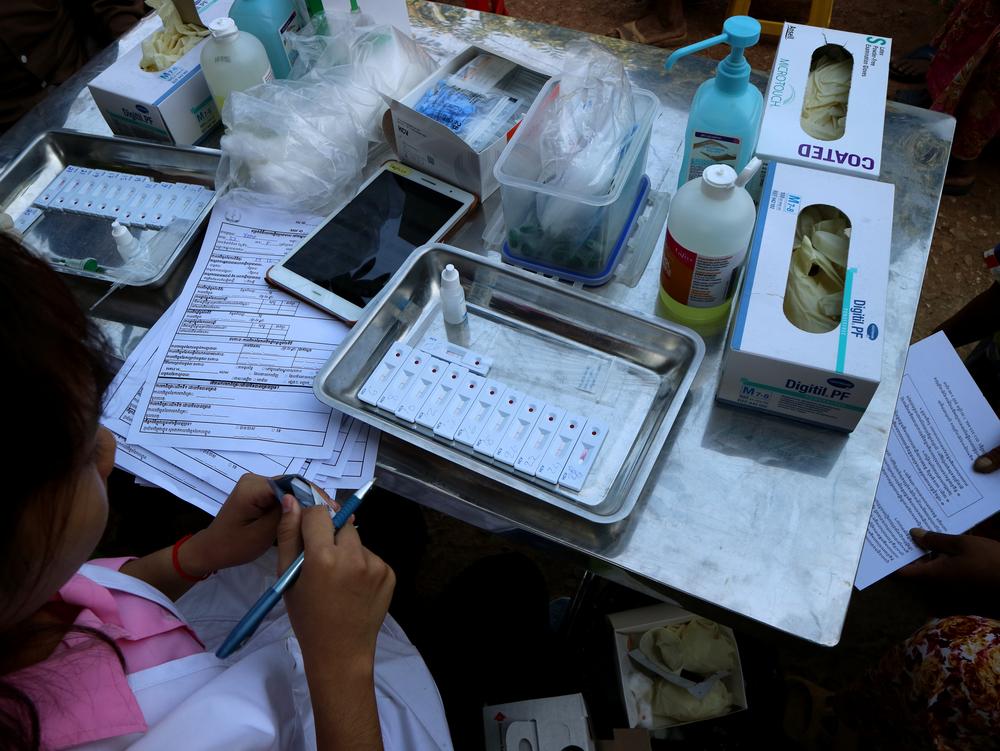
It takes 20 minutes to get the result of a blood test for Hepatitis C. January 2019 © Simon Ming/MSF
HCV can lead to chronic liver disease, cirrhosis, cancer, and death. Of the 58 million people with chronic HCV, an estimated 9.4 million people have been effectively cured. Twelve LMICs account for half the treatment uptake, with one country, Egypt, treating 4.4 million people.
The Hepatitis C PACT will address four key areas responsible for such a low rate of access to testing and treatment – concentrating on boosting access to both polymerase chain reaction (PCR) testing and newer-generation hepatitis C drugs called direct-acting antivirals (DAAs). DAA treatments can cure patients in two to six months but non-generic versions have come with an infamously high price tag.
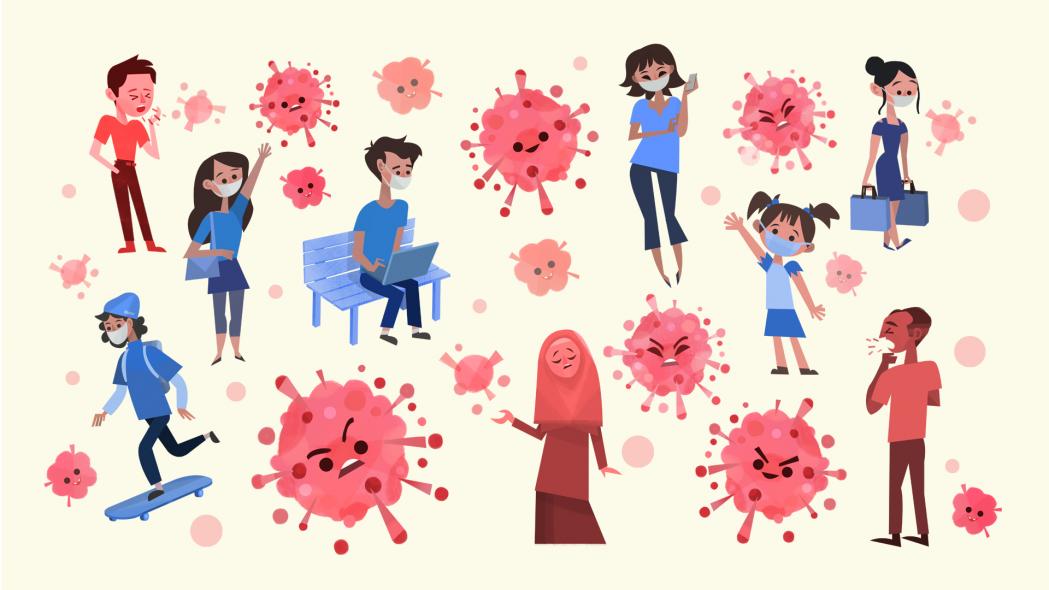
Anybody can get hepatitis C. Learn more about this disease in our Infectious But Not Invincible campaign.
The partnership will focus on:
1. Increasing awareness among decision-makers: There is insufficient knowledge about HCV control among policymakers and other leaders. The partnership will generate key evidence on hepatitis C diagnosis and linkage to care, including in sexual health and harm reduction settings, advocate for policy change, raise awareness that the disease can be controlled, and provide community education.
2. Developing financing mechanisms for viral hepatitis strategies: Currently there is insufficient domestic and global financing for HCV control. A new financing working group comprising representatives from over a dozen agencies will identify and design sustainable financing mechanisms for DAAs and diagnostics to support and catalyse global and domestic resources in priority countries.
3. Supporting simplified viral hepatitis diagnostics: There is a need for simplification of the diagnosis of the chronic hepatitis C infection. The development of simple and affordable of such diagnostic tools will be prioritized, enabling decentralization of mass testing strategies.
4. Supporting access to simple and affordable DAA treatments for HCV in high-burden LMICs: Despite decreases, DAA prices are generally too high to support large scale-up of treatment. The partnership will improve access to DAAs approved by WHO using a successful public-private partnership approach recently deployed in Malaysia for the approval of ravidasvir, a new DAA.
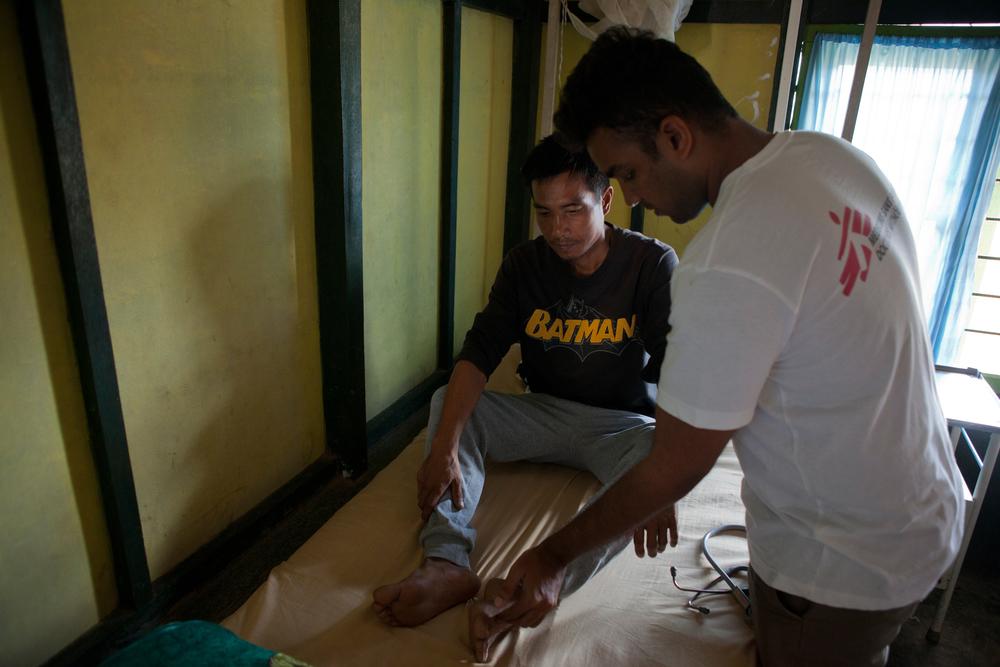
Singruwng Bejoy Anal (35) is examined by Dr Dwaragesh Nataraja. He receives treatment for Hepatitis C under Doctors Without Borders supervision at the Shalom in Churachandpur. He is supervised for two months in order to ensure he takes his treatment properly. Bejoy is also HIV-positive. April 2019 © Jan-Joseph Stok
The Hepatitis C PACT is being launched with financing from the Doctors Without Borders Transformational Investment Capacity initiative, with the objective of increasing access to treatment for HCV patients in LMICs.
Bryn Gay, HCV Project Director at Treatment Action Group, said:
We have a unique opportunity to cure hepatitis C in our lifetimes, and often investments in HCV opens the door for expanded prevention and harm reduction services in resource-limited countries. We’re excited that the Hepatitis C PACT can build on our successful track record of strengthening treatment and diagnostics literacy, which ensures affected communities can meaningfully and equitably participate and inform national hepatitis responses.Bryn Gay, Treatment Action Group
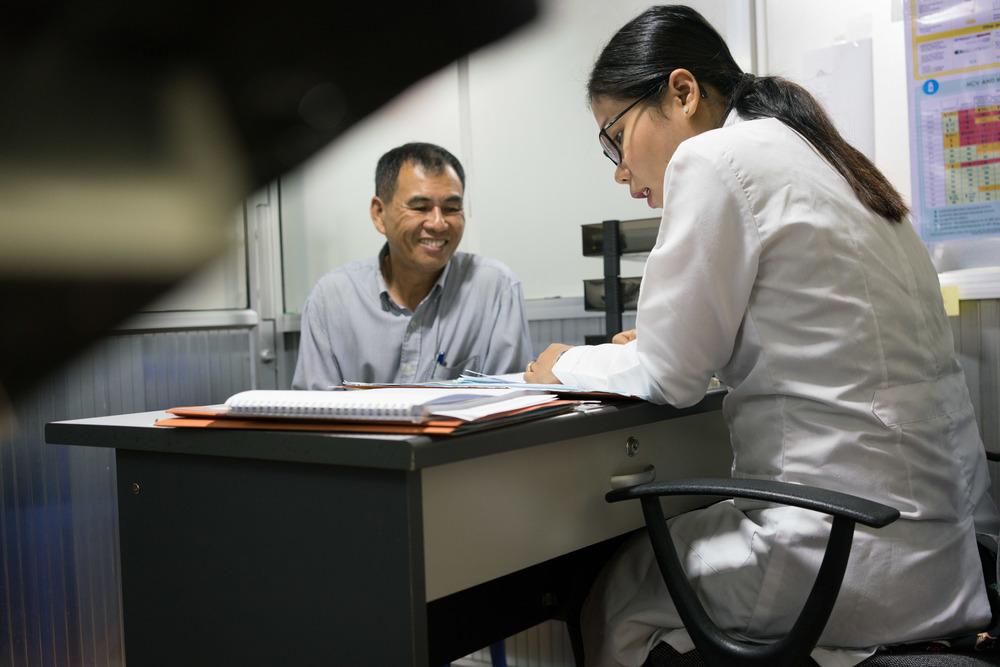
Police officer Din Savorn was in despair. This 50-year-old father of three, living in Phnom Penh, Cambodia, learned that new medicines which could cure his hepatitis C existed but were unaffordable. “I wanted to get treated, but I couldn’t afford it,” he says. “I would have had to sell my house. Then my children would have no shelter. So, I just waited.” In early 2017, Din started treatment at a Doctors Without Borders clinic in Phnom Penh, the only facility in Cambodia providing HCV treatment free of charge. By May 2017, he got the news he had waited almost 20 years to hear: his treatment was a success. He was cured. © Todd Brown
Doctors Without Borders has been working with Cambodia's Ministry of Health since 2016 to enable access to treatment, simplify hepatitis C care, and integrate this model in routine health services. The cure rate for thousands of patients remained over 97% for patients treated in tertiary level clinics or primary health care centres. We have shown through our collaboration with the Cambodian Communicable Disease Control Department and through peer-reviewed reports that such a model of HCV care allows rapid scale-up while maintaining a high quality of care, mostly delivered by trained nurses. Communicable diseases such as HCV can be controlled through supporting state-run response programmes.Mickaël Le Paih, MSF Cambodia
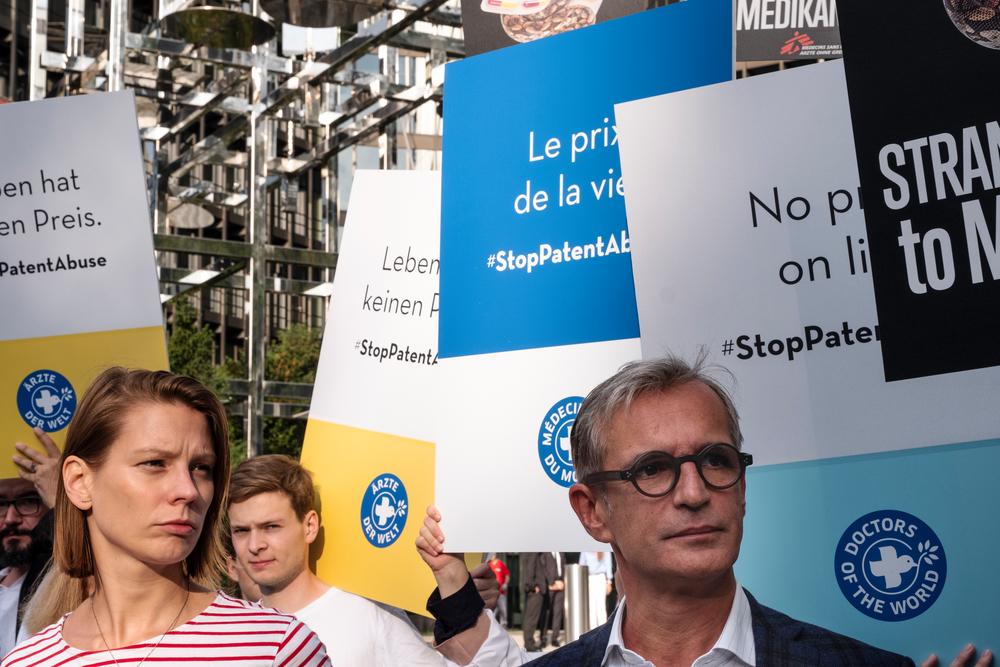
In March 2017, organisations from 17 European countries filed an opposition to Gilead Science's patent on the highly effective hepatitis C drug sofosbuvir. On 13th and 14th of September 2018, the hearing took place before the European Patent Office in Munich. Activists held a protest in front of the European Patent Office for affordable medicines at the start of proceedings on 13 September 2018. © Peter Bauza
HCV care and treatment remains significantly underfunded globally and nationally. Our partnership aims to build the investment case and the political will that can successfully mobilize additional global and domestic resources for HCV programmes. Securing political will and domestic resources can set the foundations for ensuring sustainable financing for HCV. We will underpin this work with sound policies that improve access to DAAs and diagnostics.Graciela Diap, HCV Access, DNDi
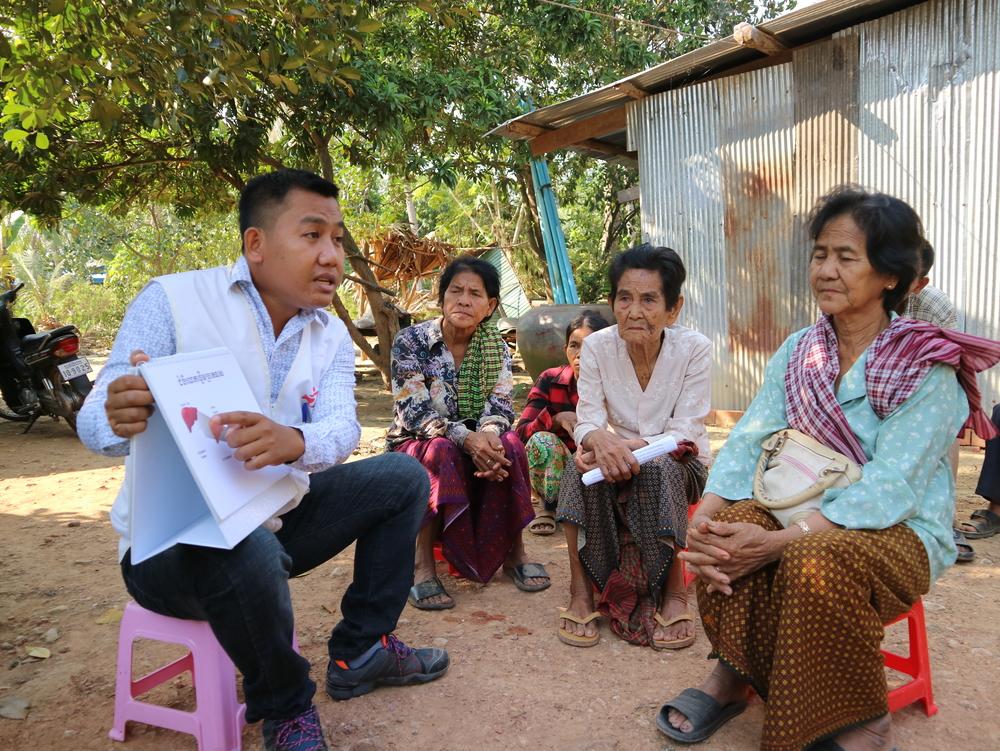
Khen Sophea carries out information and education activities during an active Hepatitis C case finding campaign in a village in Moung Ruessei district in Cambodia. Active case finding helps identify patients with Hepatitis C before symptoms develop. If tested positive, people go for a second screening to the local health center and receive subsequent treatment if necessary. January 2019 © Simon Ming/MSF
Boosting HCV testing to find the missing millions of people who don’t know they are infected and simplifying their path to treatment requires a multi-faceted approach. Drawing on the strengths of multiple partners including the Malaysian government and DNDi, we have already been able to demonstrate the benefits of making both diagnosis and treatment available in primary care clinics. Patients in Malaysia now have access to a one-stop-shop for HCV care at 200 primary care clinics across the country, and we have seen the number of people on HCV treatment increase from 300 per year in 2013 to 3000 per year in 2019. Partnerships in the Hepatitis C PACT will build on successes such as these as we continue to work together to defeat this disease.Sonjelle Shilton, Hepatitis Lead at FIND
